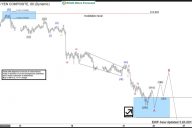Audio Length: 00:40:43
The efficient market hypothesis is one of the hottest debated topics in the investing world. In today’s session, we are going to discuss some of the many ways this theory is flawed. We will talk about many of the efficient market hypothesis assumptions and how they may or many not have gotten it wrong. Pricing is one of the main hot buttons in this theory and we will show why the efficient market hypothesis assumptions are incorrect.
Andrew: Well, two weeks ago we took out our weapons and fired them into the financial services industry and probably pissed off a few people.
Today we are going direct it against some other group. Probably make some people mad. Basically talking about the academic types in their ivory tower. There is a theory called the efficient market hypothesis, really based off a lot of the professors at the University of Chicago.
If you pursue an education in relation to investing or the stock market, economics you will get exposed to the efficient market hypothesis.
It is something that there has been a lot of studies on. Ph.D. thesis was done on it. It is also a very hotly debated theory among investors, particularly value investors.
You have the value investor side. Guys who have made billions like Warren Buffett, Seth Klarman, Peter Lynch, Joel Greenblatt, Monish Pabrai, and on, and on.
It’s kind of like them through their performance that has proved the efficient market hypothesis hasn’t held true for them. So, there’s that camp. And there’s the other camp that says the other investors should not try to beat the market because the markets are efficient.
So that’s something we kind of want to address and give our own takes on it to see.
Our audience is a lot of beginners and if there are academic studies saying we shouldn’t try to beat the market. Or is it something we should try to follow, or is it something we should look further into and see if there is a way to mitigate that.
That’s what I hope to do with this episode.
Dave: Why don’t you tell us a little bit about the efficient market hypothesis. Where it originated and who started it, and what your thoughts are on it.
Andrew: It’s been around for a while. Most recently is has been popularized by Jack Bogle and author Burton Malkiel, who wrote a Random Walk Down Wall Street. Where he brought his own inputs into it and gave some conclusions about why the markets are really efficient.
So the whole premise behind it is that there is this idea that every stock available in the stock market is fairly priced based on the information that is available currently.
There is all this financial data, these stocks trade on how they release earnings, what balance sheets look like. So, the whole premise of the efficient market hypothesis is that all this information is freely available. You’ve got millions, perhaps billions who are sifting through this.
Industry professionals, fund managers, individual investors like you and I are all dissecting this data as it comes out and investors react. For example, you have this earnings report that comes out and it will likely push the stock price up.
But the efficient market hypothesis states that all the stocks are priced fairly. They are priced based on information that is available. So there is no way to get an advantage if the company is pricing what they are releasing what is in their reports.
Dave: The studies that I have read about the efficient market hypothesis says that it basically means that the prices you see on a stock, whatever they may be. All the current factors are factored into that price for that day. So there is no discrepancy between the value of the business. And, therefore you can’t beat the market.
There is no way to beat the price of the market. I know the gentleman you mentioned earlier, Jack Bogle and Burton Malkiel. They are very smart men, learned men. They have written some very good books. And they make some great points in their books. I know that Andrew recently wrote a piece about Burton Malkiel in which you discuss your thoughts on his ideas. I agreed with a lot of the things you were saying in your article.
One of the things I wanted to mention about both of these gentlemans is that some of what they say I have to kind of take with a grain of salt. I am skeptical because they are advocating passive investing. This is one of the things that the efficient market hypothesis advocates.
Passive investing.
Because you can’t beat the market you invest in ETFs or index funds which are passive. Have lower fees and theoretically you are matching the market and that is how you can win, in essence.
Both Bogle and Malkiel have a very big stake in companies that offer ETFs and index funds. Jack Bogle is president and CEO of Vanguard. Which is the largest fund provider in the world. So he has a very large stake in what he is advocating. I am not saying that a lot of the things that he is saying are wrong. But I am saying that I think the efficient market hypothesis is frankly, kind of bunk. And I will say it out loud.
When you talk about guys like Warren Buffett, Monish Pabrai, Seth Klarman, Joel Greenblatt, Bill Ackman. There are all these great value investors that have actually figured out a way to actually beat the market.
I am going to chat just a moment about something that Warren Buffett did. He gave a speech at Columbia School for Business commemorating the 50th anniversary of the release of the great book, Security Analysis. The awesome book by Benjamin Graham that we have discussed many times on this podcast.
This speech was so popular that later he recreated on paper so that it could be remembered. It is called the Superinvestors of Graham and Doddsville.
If you have not read it then I urge you to run out and read it. An amazing article that has lots of great “Buffettisms” in it.
One of the things that he talks a lot about in the speech is he illustrates the performance of eight different super investors. These are all value investors that he has either worked with or knows personally that have beaten the market by an average of 18% to 20% over a 30 year period.
One of the things that he talks about in this article is a coin flip. He talks about the statistics of that and if you take every single person in the US and do a coin flip. Eventually, you are going to get down to very few winners.
He argues that you can take this same this same test and do it with orangutans and get roughly the same result. His point in this whole coin flip is that if you find 40 orangutans that are doing much better than the other orangutans. And these 40 are coming from a zoo in Omaha then you are going to be curious. Why are these orangutans doing so great?
What is their secret? You are going to start analyzing this to try to figure out they are beating the rest of the orangutans flipping coins.
He calls this an intellectual exercise and this is where he comes up with this Graham and Doddsville because he is taking all the gentleman who has been influenced by the works of Benjamin Graham and David Dodd. And lumping them all into a little town that he calls Graham and Doddsville.
Through his explanation of how these gentlemen all have different styles of investing. They are all value investing by a generality but they all have different ways of coming at it. They have all been able to beat the market by finding a difference in the value of the companies.











No Comments